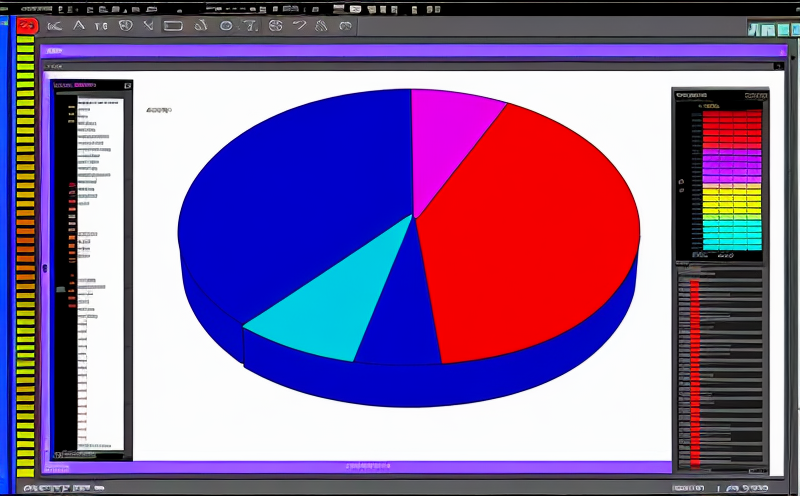ASTM D7426 Thermogravimetric Analysis of Plastics
The ASTM D7426 standard specifies a procedure for conducting thermogravimetric analysis (TGA) to determine the thermal stability, decomposition temperature, and mass loss characteristics of plastics. This method is particularly useful for quality managers, compliance officers, R&D engineers, and procurement teams involved in ensuring product integrity and regulatory compliance.
Thermogravimetric Analysis involves measuring the change in mass of a sample as it is heated under controlled conditions. For plastics, this process helps identify the thermal degradation temperature (Td) at which significant weight loss begins, and the total amount of weight lost during heating to complete decomposition.
The ASTM D7426 method specifies precise specimen preparation, including sample size, moisture content, and drying conditions. The apparatus used must meet stringent requirements set forth in the standard, ensuring accurate and reproducible results.
Understanding the thermal stability of plastics is crucial for optimizing processing conditions, predicting product lifespan under real-world operating temperatures, and ensuring compliance with regulatory standards. This information can influence decisions on raw material selection, process optimization, and final product design.
The ASTM D7426 procedure involves heating a precisely weighed sample in an inert atmosphere (such as nitrogen or argon) at a controlled rate of temperature increase. The mass change is recorded continuously to generate a thermogravimetric curve. This curve provides detailed insights into the thermal behavior, including the onset and completion temperatures for weight loss stages.
By conducting ASTM D7426 TGA tests, laboratories can provide valuable data that supports various applications in chemical testing, material science, and product development:
- Evaluation of new polymer formulations
- Determination of the thermal stability of recycled plastics
- Assessment of additives’ effects on plastic performance
- Development of high-temperature resistant materials
The accuracy and reliability of ASTM D7426 TGA are paramount in ensuring that the data generated can be trusted for making informed decisions. The method is widely recognized and referenced in industry standards, regulatory frameworks, and academic literature.
ASTM D7426 TGA tests are conducted using specialized equipment designed to meet the stringent requirements outlined in the standard. These instruments ensure precise temperature control, consistent heating rates, and accurate mass measurement sensitivity.
Industry Applications
The ASTM D7426 procedure is applicable across various industries where thermogravimetric analysis of plastics plays a critical role:
- Petrochemicals: Assessing the thermal stability of polymer-based products.
- Machinery Manufacturing: Evaluating the durability and performance of plastic components under high-temperature conditions.
- Automotive Industry: Ensuring compliance with temperature-related standards in vehicle parts.
- Consumer Goods: Determining the shelf life and safety of packaging materials.
In each industry, ASTM D7426 TGA provides essential data that informs decisions on material selection, process optimization, and product design. This information is vital for ensuring compliance with international standards and regulatory requirements.
The test results generated by ASTM D7426 are often used in conjunction with other analytical methods to provide a comprehensive understanding of a plastic’s thermal behavior. This holistic approach ensures that manufacturers can make informed decisions about the materials they use, leading to higher-quality products and enhanced customer satisfaction.
Competitive Advantage and Market Impact
Conducting ASTM D7426 TGA tests offers significant competitive advantages in the market:
- Enhanced Product Quality: By identifying the thermal stability of plastics, companies can optimize their manufacturing processes to produce higher-quality products.
- Avoidance of Non-compliance Risks: Ensuring compliance with international standards and regulatory requirements reduces the risk of costly penalties and reputational damage.
- Innovation in Material Science: The insights gained from ASTM D7426 TGA can drive innovation in polymer development, leading to the creation of new, more durable materials.
- Precise Process Optimization: Understanding the thermal behavior of plastics allows for precise optimization of processing conditions, reducing waste and improving efficiency.
The accurate data provided by ASTM D7426 TGA is crucial in maintaining a competitive edge. It enables companies to stay ahead of industry trends, ensuring they meet or exceed customer expectations while remaining compliant with global standards.
Use Cases and Application Examples
| Industry Segment | Application Example | Data Provided |
|---|---|---|
| Petrochemicals | Evaluation of polymer-based products for thermal stability. | Td and mass loss characteristics during heating. |
| Machinery Manufacturing | Assessing the durability of plastic components under high-temperature conditions. | Thermal stability at operating temperatures. |
| Automotive Industry | Ensuring compliance with temperature-related standards in vehicle parts. | Decomposition temperature and weight loss during heating. |
| Consumer Goods | Determining the shelf life and safety of packaging materials. | Td and total mass loss at specified temperatures. |
In each case, ASTM D7426 TGA provides critical data that supports informed decision-making. The precise measurement of thermal behavior helps manufacturers optimize their processes, ensuring the highest quality products while remaining compliant with industry standards.





